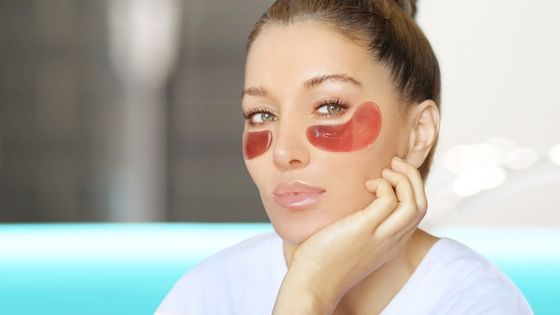When you sleep too little during exams, you can see dark circles under the eyes. But poor sleeping is not the only cause behind dark circles. It can appear due to allergies, aging, and genetics. Changing your habits and using some remedies can help in removing dark circles. Having dark circles problems under the lower eyelids is very common. Sometimes, you can also see bags under your eyes that make you look like a panda. This is a sign that you’re tired. But there can be a few other reasons behind this problem. Dark circles are common in older adults, people who have dark skin tones or have a genetic predisposition. Meanwhile, fatigue is the most well-known cause of dark circles. Usually, dark circles are not a serious condition and do not need medical attention. However, it can make you look tired or aged.
Common causes behind dark circles
Fatigue
Staying up the whole night, oversleeping, extreme fatigue, or anything can cause dark circles under the eyes. Sleep deprivation leads to skin dullness. Due to fatigue, dark tissues and blood vessels beneath the skin start appearing. When you sleep less, fluid starts to build up under the eyes which makes them puffy. Sometimes, dark circles can be the shadow of your puffy eyes.
Eyestrain
Your eyes can strain when you are watching too much TV or a computer screen. Nowadays, people spend their whole day in front of their laptops or phones. This can enlarge the blood vessels around the eyes and make the skin around the eyes darker.
Age
Another common reason behind dark circles is age. Your growing age is the natural factor behind dark circles. With age, the skin starts getting thinner. This happens due to a decrease in fat and collagen. Due to this, the dark blood vessels under the skin become more visible and cause dark circles.
Allergies
Any kind of allergic reaction can trigger your dark circles. When a person has an allergic reaction, the body releases histamines to fight off the allergens. Due to this, the person may face some symptoms like redness, itchiness, and puffy eyes. Histamines may also cause blood vessel dilation that is more visible beneath the skin. When a person has allergies, he often is urged to scratch and run the itchy skin around the eyes. These actions can worsen the condition and can lead to dark shadows beneath the eyes.
Dehydration
You can get various skin conditions due to dehydration. When the body is not hydrated, the skin beneath the eyes starts looking dull. Your eyes also start looking sunken as the eye’s proximity is clone to the underlying bone.
Genetics
Skin conditions can be genetic. If anyone in the family has dark circles problems then you can face the same problems. The inherited traits start appearing in childhood. But over time, the condition may reduce or can get worse.
Sun exposure
Sun is bad for your skin. When your skin gets exposed to the sun, it starts producing excess melanin. It is a pigment that gives color to the skin. But when the person is too exposed to the sun (usually for the skin), it can cause pigmentation and the exposed skin to look dark.
Anemia
It is a condition where the red blood cells are less than normal. Due to this problem, you can feel dizzy, lightheaded, weak, short of breath, and tired. When a person has anemia, he can notice the paleness in the skin but dark circles under the eyes. Holistic doctors New Jersey may prescribe iron supplements to manage the condition.
Treatment options for dark circles
Chemical peeling
If a person is facing dark circles issues due to skin conditions like pigmentation then a chemical peel may help to reduce it. In this treatment, the damaged skin cells get removed and healthier skin appears. Some other medical options are laser surgery, surgical implants, carboxytherapy, etc.
Apply a cold compress
If you get dark circles due to poor sleep then you can try a cold compress to reduce swelling. Take a few ice cubes and wrap them in a cloth. Now apply it to your eyes. Apply a cold compress for about 10 minutes. You can also dampen the cotton pad with cold water and keep it on the eyes for 20 minutes. It will reduce puffiness and dark circles.
Get good sleep
If you are noticing dark circles then you should manage your sleep time. Go to the bed timely and try to get good sleep for about 8 hours. Keep your bedroom cool and dark to get good sleep. It will reduce your face stress and dark circles.
Stay hydrated
Drink a good amount of water to reduce dark circles and keep the skin dehydrated. Try to drink at least 4-5 liters of water every day. If you can’t drink this much water, you can drink juices and high water-content fruits.

